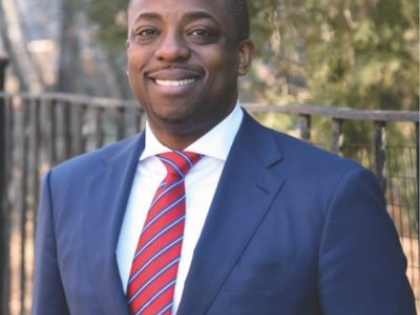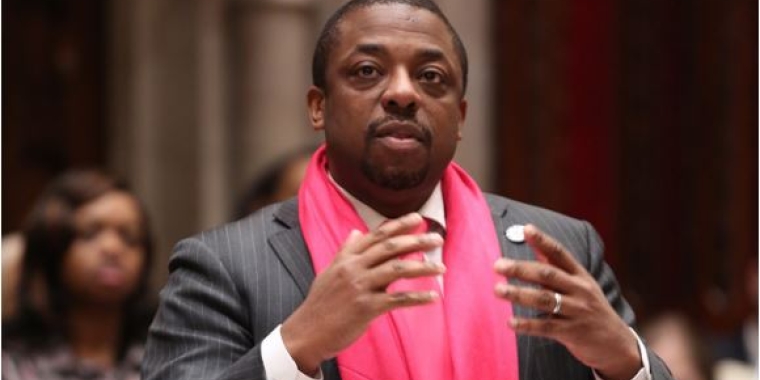
Harlem senator pushes bill barring pension fund from investing in private prison companies
ALBANY — A state senator from Harlem has introduced a bill that would require the pension fund to disinvest from companies with ties to privately run prisons, the Daily News has learned.
“There is no reason a progressive state like New York should be benefiting from mass incarceration,” said bill sponsor Sen. Brian Benjamin, a Democrat.
“Passing this bill would not only be the right thing to do morally, it would benefit society economically.”
Under the bill, the state controller, the sole trustee of the state pension fund, would be prohibited from investing in any stocks, securities or other obligation of any company or subsidiary that owns or invests in a for-profit company that contracts with a government to run a prison.
Benjamin, the ranking member on the Senate Civil Service and Pensions Committee, argued that “by their very nature, private, for-profit prisons drive the inhumane practice of incarcerating low-income people of color.”
A Benjamin spokesman said the roughly $200 billion state pension fund has about $11.5 million invested in at least two companies with ties to private prisons.
Jennifer Freeman, a spokeswoman for state Controller Thomas DiNapoli, couldn't confirm the exact amount, but said the holdings are “minimal.”
Freeman said the controller's office has spoken with Benjamin about the legislation, but hasn't taken a position.
DiNapoli in late 2015 announced his office was taking steps to reduce and restrict the fund's investment in private prisons.
State law does not allow privately run prisons in New York. But there is no formal prohibition keeping the state pension fund from investing in such companies.
E.J. McMahon, of the Empire Center, a state fiscal watchdog group, came out against the Benjamin bill, saying the controller's responsibility is to get the best returns on investments for the state's pensioners, not to politicize the process.
“This is basically a recipe for endless meddling and would actually undermine the integrity of the pension investments,” McMahon said. "
Gov. Cuomo this past week called for the pension fund to stop investing in fossil fuel companies and also to find ways to disinvest current holdings from such companies.
DiNapoli stopped short of committing to Cuomo's goal. Unlike private prisons, energy companies are passively or actively part of many of the index funds in which the controller's office invests, his spokeswoman said.
“We have billions in energy companies,” Freeman said. “It's not easy to unravel those investments. Plus, those investments are typically large payers. They generally deliver solid returns.”
Cuomo argued last week that “you have to put your money where your mouth is and that’s what this proposal is about.”
Freeman argued that under DiNapoli, the pension fund has been finding ways to reduce “our carbon footprint.”
She said the fund has $5 billion dedicated to sustainable energy investments and $2 billion in an index that invests in companies that reduce carbon emissions. The fund has also taken steps to address climate change through shareholder engagement, she said.

